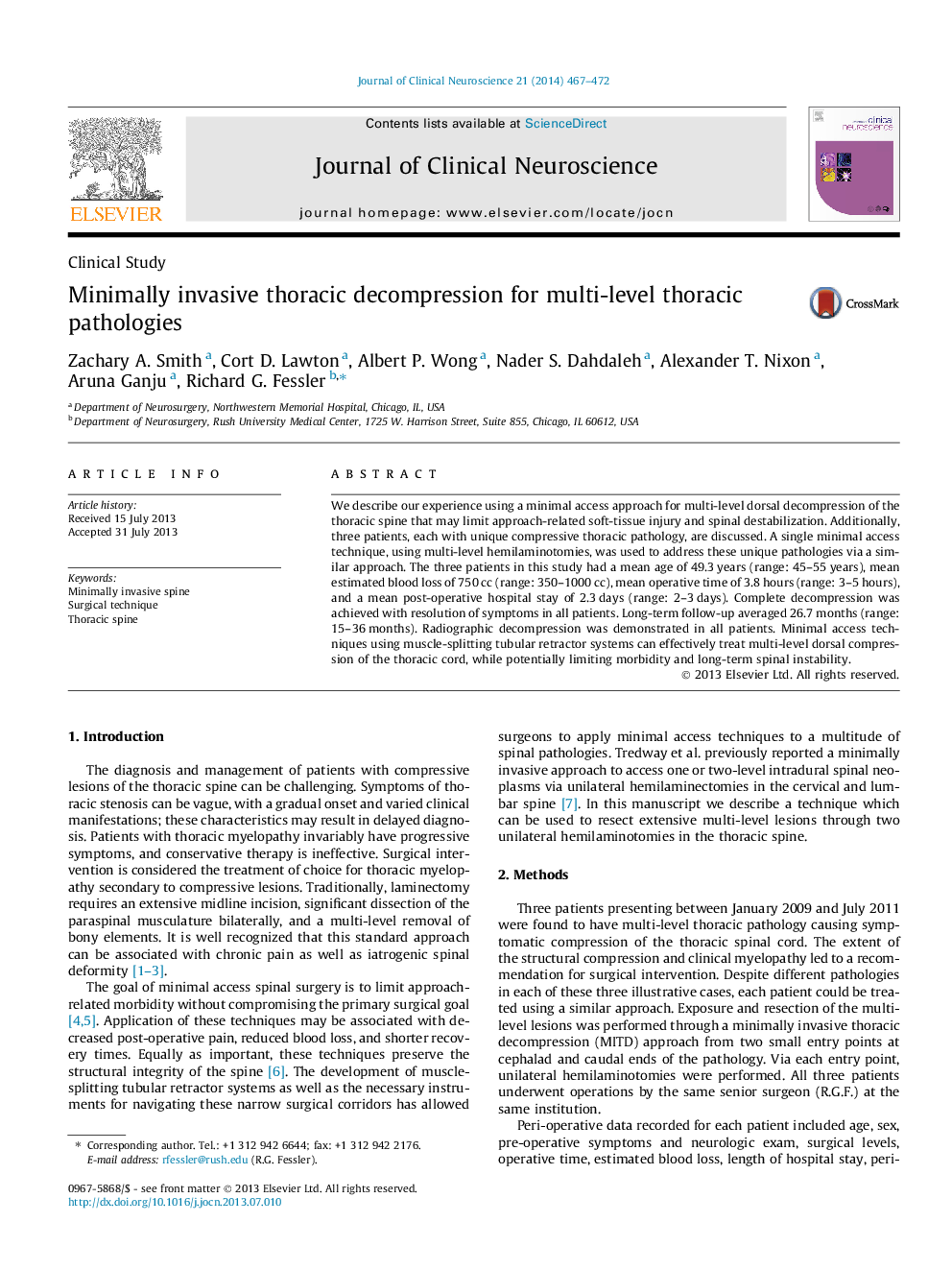| Article ID | Journal | Published Year | Pages | File Type |
|---|---|---|---|---|
| 3059443 | Journal of Clinical Neuroscience | 2014 | 6 Pages |
We describe our experience using a minimal access approach for multi-level dorsal decompression of the thoracic spine that may limit approach-related soft-tissue injury and spinal destabilization. Additionally, three patients, each with unique compressive thoracic pathology, are discussed. A single minimal access technique, using multi-level hemilaminotomies, was used to address these unique pathologies via a similar approach. The three patients in this study had a mean age of 49.3 years (range: 45–55 years), mean estimated blood loss of 750 cc (range: 350–1000 cc), mean operative time of 3.8 hours (range: 3–5 hours), and a mean post-operative hospital stay of 2.3 days (range: 2–3 days). Complete decompression was achieved with resolution of symptoms in all patients. Long-term follow-up averaged 26.7 months (range: 15–36 months). Radiographic decompression was demonstrated in all patients. Minimal access techniques using muscle-splitting tubular retractor systems can effectively treat multi-level dorsal compression of the thoracic cord, while potentially limiting morbidity and long-term spinal instability.
